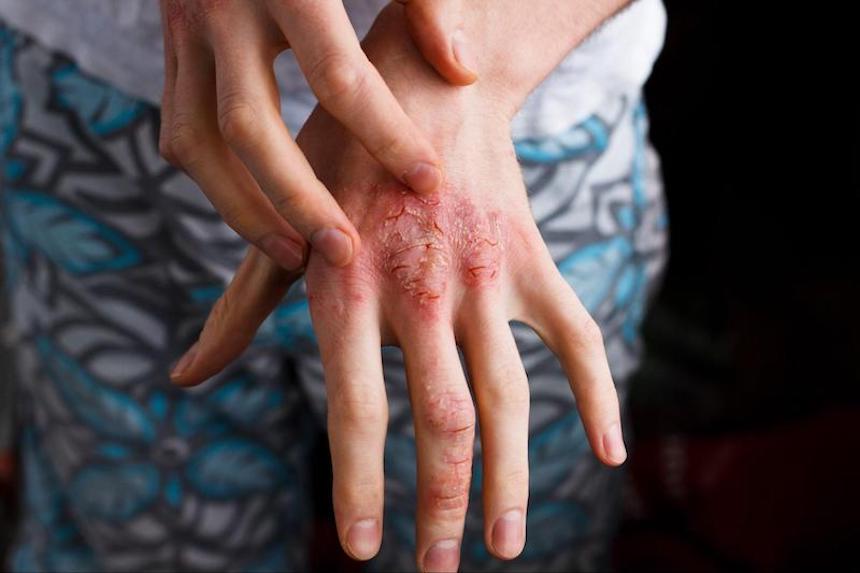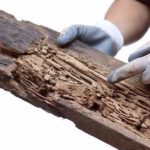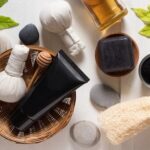
Many people and even doctors can mistake atopic dermatitis (atopic eczema) and allergic contact dermatitis for other skin conditions. The problem with misdiagnosing atopic or allergic contact dermatitis is that like many other misdiagnoses, they can not only last longer but possibly even get worse. Like any other condition or disease, the right medication and treatment are always needed. When you know, that what you have is 100% atopic or allergic contact dermatitis, you want it gone, and as soon as humanly possible.
From My Own Personal Experience
I’ve always had sensitive skin, as well as a horrible allergic reaction to Poison Oak and Poison Ivy as a child. I mean, to the point where you wouldn’t recognize me if I got it. I’m allergic to so many things that I’m almost fearful to mention them all. And I definitely wash my hands more than I know I should, which doesn’t help someone who has insanely sensitive skin. But regardless of my daily life, habits, and allergies, I wanted a cure or at least a treatment for atopic and contact dermatitis. My preference was to find some type of home remedy that would work without having to take things that have so many beyond awful side effects that corticosteroids like prednisone and prednisolone have.
Who wants to take steroids if they don’t have to, right? Rhetorical! The possible side effect of a moon face, weight gain shaping you like you’re wearing a swimming tube or a donut around your waist, and temporary clear skin resulting in acne later, doesn’t sound so appealing. Not to mention, so many other not-so-charming possible side effects. And I almost forgot to mention the horrifying vivid nightmares that I’d wake myself up from by screaming or crying out of fear. I’m shivering thinking about it. And if you’re sensitive to everything like me, you’ll get those not-so-amazing side effects, and all of them I might add! Taking Prednisone or Prednisolone will completely get rid of most cases. But what you should expect and what you’re basically really settling for, is short-term light and long-term darkness. The side effects are by all means, not worth it.
Even topical steroid creams and ointments like Hydrocortisone can help and reduce inflammation and temporarily heal many outbreaks. But still, the side effects are not worth it in the long run. Oh, and Heaven forbid if you take these medications while pregnant because they’re known to have the possibility of a specific deformation in infants called cleft lip (chas v’shalom – pu pu pu, as my mom would say) which is completely heartbreaking. When in doubt, go natural, and always, and I mean always do things in life that will have good long-term results. And the best way to be sure is to do things that will provide short-term darkness, but long-term light. We should always do things the right way, and be as patient as possible.
For those who choose to take oral medication or use the creams etc., just know that over-usage, as well as many years of using them, can kill their effectiveness altogether, and become tachyphylaxis. Having said all of the above, there are always other options and creams or ointments that you could try or ask your dermatologist or allergy specialist about. Maybe they’ll recommend Elidel or Protopic, which I believe don’t thin the skin in the same negative manner as steroids would. That’s a plus, right? However, natural still takes the cake in my opinion when it’s not a severe case.
Now, before I tell you some of the best natural home remedies to treat atopic and allergic contact dermatitis, I want to share with you the first time that I got atopic dermatitis.
I went into a health and vitamin store which I won’t name, because well, that wouldn’t be nice, but also, because it’s irrelevant. I was browsing around and looking for different vitamins and things to improve my health, my hair, and my skin, when I first came across organic coconut oil (I won’t name the brand, because it’s irrelevant, and besides, organic coconut oil is all the same despite the brand). And just to add, this was before it became the newest and coolest trend (if you will), to the point where every health fanatic was buying and basically swimming in it.
I had no idea what a big jar of coconut oil was doing in a health store. And please folks, don’t judge, because this was years ago when they weren’t sold at every drugstore and health food store that you know. So I asked a worker and he explained to me all of the cool benefits of coconut oil. He said that it’s good for everything. Of course enhancing the word everything, as he did, I thought holy guacamole! Or maybe I should say holy coconnoli! O.K. maybe that doesn’t make sense. Regardless, I thought that this product was simply incredible! He basically told me that I could use it all over my hair as a conditioner and all over my face and body as well. And I said, “But my skin is so incredibly sensitive.” He then explained how it’s all natural and how basically, it could do no harm. I should have known that a sure thing probably came with some doubts, but I just went with it.
So I basically swam in it. Ooh la la and coconut oil was my new thing. It smelled like Heaven and it felt like heaven on my hair and skin. And I even used it as a lotion for my face before I’d put on makeup. If anyone has used this all over their body and hair, they probably know to hold on for their ever-loving life while in the shower, because the ground will be slippery than a banana peel on an ice rink. But here’s what happened. In a nutshell, my chin started getting irritated. And it reminded me of how my hands used to feel when I was younger, from endlessly and compulsively washing them (I’ve chilled a bit since then—just a bit though). They would be itchy, and red, and they’d bleed from using detergent-based soaps, not to mention, from washing them when they weren’t that dirty, to begin with. Wow, this is turning into Jewish confession here, deep breath.
Diagnosed with Atopic Dermatitis and Allergic Contact Dermatitis
Getting diagnosed by the dermatologist took time. I went to about three different doctors, I was misdiagnosed, and was given the wrong meds by one doctor who I won’t mention a name (I’m sure you see the pattern by now), never did anything but probably hurt my liver. However, they finally figured out what I had on my chin—atopic dermatitis. And it was in my hands too. Ever since then, on the long occasion, I still get it. However, it only flares up maybe once a year if I don’t treat it quick enough. Having said that, my preference, after seeing the crummy side effects of corticosteroids, is to go au naturel whenever possible.
Other than some people who’ve commented in forums for allergies to coconut and its derivatives, has anyone believed me when I said that my atopic dermatitis started from rubbing organic coconut oil all over my face. I’ve had skin testing done, and I’m not allergic to coconut or any derivatives. However, I still feel that it provoked my atopic dermatitis. And hey, I get it, why should anyone believe something that wasn’t told to them by their doctor or one who doesn’t have at least 12 years of schooling, a doctorate, and certification by the American Board of Medical Specialists (ABMS) or the American Osteopathic Association (AOA). This is something I should maybe consider getting, especially being that I’m so damn good at diagnosing skin conditions for people! Super humble I know. My point is, that I completely understand why you may choose not to follow my suggestions, but it never hurts to listen and then use your logic and better judgment based on your specific case.
I’m thankful that I don’t get atopic dermatitis too severely and that it’s maybe only the size of a dime or a nickel perhaps whenever I do get it. Well, other than my knuckles, because my hands are allergic to everything and nearly every soap. But there’s no way in Hell that I’m not going to use the detergent soap after using a public restroom. Like I said, at the end of the day, it could be worse, because I have seen Google images, and holy Toledo, there are some truly unfortunate cases, which again, unfortunately, I’m not sure that a natural remedy would be adequate enough.
There’s no way that I can know for sure how I got it, especially being that researchers don’t really know all of the details themselves. However, I tend to think that a part of us instinctively knows what’s wrong with us, especially if we’re the sensitive type. Now I get atopic dermatitis or even adult acne whenever I use certain products, makeup, and soaps on my face (outside of the products that I know I’m not allergic to. I even get allergic to shampoos, conditioners, and most hair products. That is if they come in contact with my face or the top of my hands. I’m allergic to certain foods as well, and now, anything that rubs against my chin, any products, too much sweat, and even wind, believe it or not, can leave me with atopic dermatitis. Therefore, now I live a little bit more cautiously and aware, and I only use things on my skin that I know won’t trigger a bad reaction.
What Is Atopic Dermatitis?
Atopic Dermatitis is a skin allergy, also called AD, contact eczema, and allergic contact eczema. It’s one of the most common and perhaps, severe forms of eczema. Many babies get this skin condition, but many adults get it as well. It usually looks like a red itchy rash. You can get it just about anywhere on your face or body. Researchers don’t know the exact cause of atopic dermatitis. But they’ve said that it’s likely a combination of genetics and environmental factors. I’ve read many articles that most say pretty much the same things in regards to possible causes.
Researchers, as well as many people who have experienced or know someone (perhaps their child) who has had atopic dermatitis or allergic contact dermatitis have said (or written) that many of the contributing factors of getting contact or allergic contact dermatitis, is by stress, infection, hormone imbalance, dry air, sweating or becoming too hot or cold, dry skin, and other allergens. As well, they say that foods, seasonal allergies, and dust mites could be the culprits for some people. Atopic dermatitis is itchy and uncomfortable. If left untreated, it can get worse and even turn into a scab. They can even hurt and bleed if the wrong medication is used, and if you accidentally hit or brush against the flared-up area.
Things to Remember, Until Your Skin Is Fully Healed, Avoid the Following:
- Avoid sweating and intense workouts
- Avoid hot water, saunas, and steam rooms
- Don’t use lotions if you tend to be allergic to many
- Don’t wear makeup
- Um, coconut oil (I had to add that)
- Avoid contact with anything acidic (orange peels, fruit juices, etc.)
- Scratching spreads—don’t do it
- Avoid dry air and wind
- Avoid all soaps and things that contain detergent whenever possible
- It doesn’t hurt to always use allergy-free laundry detergent and avoid the use of fabric softener.
- Avoid letting shampoo and conditioner run over your face or whatever area that you tend to get atopic dermatitis
- No spicy food (except for Cayenne pepper, cayenne pepper is good for almost everything)
- Over-washing or over-medicating
- Avoid the sun
The Best Things to Do to Treat Atopic and Allergic Contact Dermatitis:
- Drink a lot of water
- Cut some fresh Aloe Vera from your plant and smother the area where you have atopic or allergic contact dermatitis. Aloe vera is heaven-sent and the best thing for soothing the itching as well as for healing the rash. If you don’t have an aloe vera plant at your home, I highly recommend getting one.
- Eucerin Baby Eczema Relief Body Creme is a great product. I’ve tried other creams and baby ones as well but this is the only one that I wasn’t allergic to. It’s a great moisturizer and relieves much of the itching and helps to heal as well.
- When I need to wash my face, I recommend using Kiss My Face Pure Olive Oil Soap or Kiss My Face Olive and Aloe soap. These are the only soaps that I’m not allergic to. And I’ve read in forums that many others share a similar experience with these particular soaps. As well, I thought it would be a good tip for those who were wondering, I use Mac concealer specifically on my chin when needed. All, and I mean ALL other makeup products I’m allergic to (on my chin)—weird right? I know, but true. Also, don’t use the same concealer that you use under your eyes or elsewhere if you tend to use eye cream and lotions as a base. That’s basically the same thing as putting eye cream and lotion onto your rash which will make it worse. Be as cleanly and sterile as possible when it comes to healing as well as preventative care.
- Try to be Zen and as stress-free as possible
Last but not least, follow your Doctor’s orders. If they tell you what to use or take, listen to them, and not to me! I’m not a Doctor, despite that I occasionally have doctors write for me in Doctor’s Journal. I’m a Pharmacy Technician which basically means diddly squat when it comes to treating medical issues. However, I’ve tried different products and medications, and I’ve read a lot and done research. As well, I’ve listened to many opinions from doctors which always adds to my ego (kidding). But remember, what might work for me, might not work for others. But it never hurts to listen and learn from what others have experienced (doctor or not).
- Falafel on Wheels – Fresh and Delicious Food Truck in Encino, Los Angeles, California - June 22, 2022
- 18 Ways To Know You’re Not Being Appreciated - April 11, 2022
- Finally Okay, Without You - December 2, 2021






